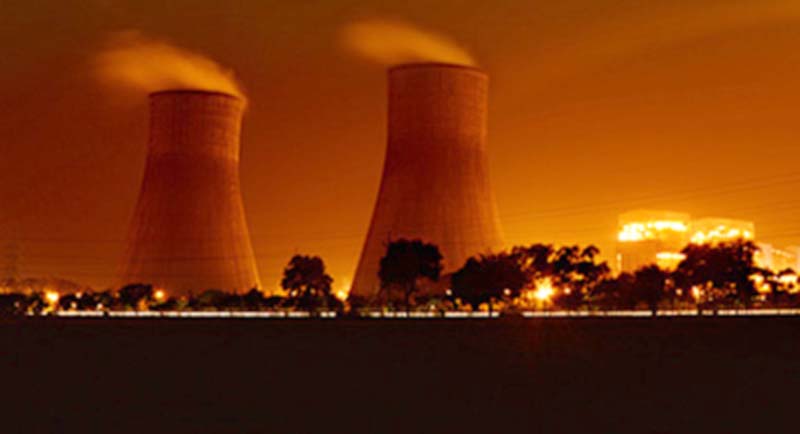The Nuclear Suppliers Group is a multilateral export control regime and a group of nuclear supplier countries that seek to prevent nuclear proliferation by controlling the export of materials, equipment and technology that can be used to manufacture nuclear weapons. It was founded in response to the Indian nuclear test in 1974. In May 2016, Pakistan formally applied for NSG membership.
Pakistan wants to access nuclear technology through the membership of the NSG to meet the rising demand of electricity through nuclear energy. Pakistan has the credentials that entitle it to becoming a member of all multi-lateral strategic export control regimes, including the NSG. Moreover, Pakistan has the expertise, manpower and infrastructure, as well as the ability to supply NSG controlled items, goods and services for a range of nuclear applications for peaceful uses.
Pakistan has all the credentials that make it eligible to be an NSG member state. Pakistan is party to several international nonproliferation and disarmament related arrangements. It has a robust and comprehensive export control regime and has an independent and autonomous regulatory body. Pakistan cooperates internationally with the International Atomic Energy Agency, the CERN and the SESAME to explore the peaceful application of nuclear technology. Pakistan is one of the few states in the world to operate a complete nuclear fuel cycle.
It is benefiting from several applications of nuclear technology, which include agriculture, medicine, environment protection, power production. Pakistan is in a position to provide nuclear fuel cycle services under the IAEA safeguards. The establishment of the Pakistan Institute of Nuclear Science and Technology was aimed at conducting research in various nuclear fields to gain knowledge and experience, providing guidance and leadership in technological development for the peaceful application of nuclear energy, and providing radioisotopes and radio-pharmaceuticals to meet the need of nuclear medical centres and industry research institutes.
Pakistan Atomic Energy Commission gives high priority to the application of nuclear technology in health sector. Through its 18 medical centres all over the country, patients receive state-of-the-art diagnostic and treatment facilities either free of charge or at subsidised rates. Pakistan also has four agricultural services centres that use nuclear technology for agriculture.
All responsible states should consider Pakistan’s membership into the NSG on the basis of transparent, objective and non-discriminatory criteria. The Strategic Exports Control Division of Pakistan is involved in making rules and regulations; it also reviews the Control Lists. The SECDIV maintains comprehensive Export Control Lists, formulated in 2005, which have catchall provisions incorporated in them.
The SECDIV enables the government to monitor control export, re-export, trans-shipment, transit of goods, technologies, material and equipment that may contribute to the designing, development, production, stockpiling, maintenance or use of nuclear and biological weapons and their delivery systems. Pakistan’s CLs classification is based on the Europe Union model. The review of CLs is done on regular basis. Currently, Pakistan’s CLs are in complete harmony with the control lists maintained by the NSG, Missile Technology Control Regime, and Australian Group.
Pakistan has the ability to supply nuclear items covered in the NSG guidelines. It has more than 42 years’ experience in safe and secure operation of nuclear power plants under IAEA safeguards. Its Centre of Excellence for Nuclear Security in partnership with the IAEA already serves as a regional and international hub for nuclear security training.
Pakistan has been operating the Canadian supplied Karachi Nuclear Power Plant independently since 1974. Pakistan has a tremendous amount of experience with application of nuclear technology other than for power generation. It can overcome the issue of load shedding, if all the power plants in the country run with the same capacity to produce electricity as that of nuclear power plants.
The country should have 40,000 MW electricity production added to the grid by 2030. As an associate member of CERN, Pakistan already plays a vital role in nuclear research; doing the same thing as an NSG member state will not be a big leap. Pakistan is effectively administrating a vibrant Personnel Reliability Programme for all its manpower working for its strategic projects. This PRP is similar to the US model. Furthermore, the National Institute of Safety and Security was established for professionals, technicians and managers in the fields of nuclear safety and security.
Nuclear security systems and measures in Pakistan are based on the concept of 5Ds that includes: deter, detect, delay, defend, and destroy. The Nuclear Emergency Management System is in place to appropriately tackle and cope with nuclear or radiological emergencies. Pakistan is party to the Convention on Physical Protection of Nuclear Material, the Convention on Nuclear Safety, the Convention on Early Notification of a Nuclear Accident, and the Convention on Assistance in the Case of a Nuclear Accident or Radiological Emergency.
Pakistan collaborates with various IAEA committees as an active member, such as the Nuclear Safety Standards Committee, Transport Safety Standards Committee, Nuclear Security Guidance Committee, Committee on Safety Standards and Global Nuclear Safety and Security Network.
The Nuclear Threat Initiative termed Pakistan as the ‘most improved’ country among the nine nuclear-armed states, and better at safeguarding its nuclear materials than its rival India. Pakistan has a declared unilateral moratorium in place on nuclear testing and has declared that it will not be the first one to resume nuclear testing in South Asia. It has also offered bilateral agreement on moratorium on nuclear testing.
The discriminatory approach adopted by the US and others can seriously undermine South Asia’s strategic stability. China, New Zealand, Ireland, Turkey, South Africa and Austria had already rejected the country-specific exemption from the NSG rules. Pakistan calls for a criteria-based approach, which will ensure that all states are treated fairly and without a bias.
A country-specific exemption would further undermine the credibility of the NSG and weaken the non-proliferation regime. All responsible states should consider Pakistan’s membership into the NSG on the basis of transparent, objective and non-discriminatory criteria.


